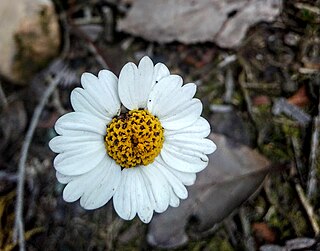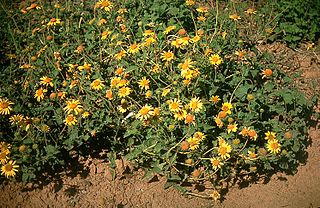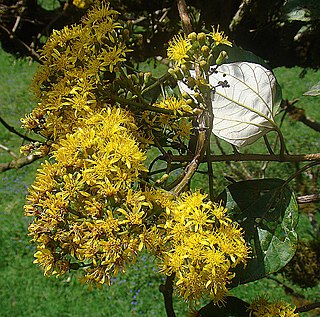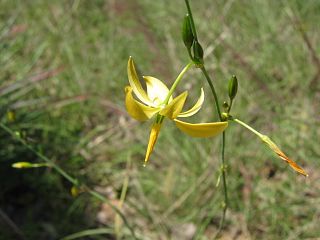
Chusquea is a genus of evergreen bamboos in the grass family. Most of them are native to mountain habitats in Latin America, from Mexico to southern Chile and Argentina.

Clethra is a genus of flowering shrubs or small trees described as a genus by Linnaeus in 1753.

Bocconia is a genus of flowering plants in the poppy family, Papaveraceae, that contains 10 species. Carl Linnaeus chose the name to honor the Italian botanist Paolo Boccone (1633–1704). It is native to Mexico, Central America, the Caribbean, and South America.

Trixis is a genus of shrubs in the family Asteraceae, native to North and South America including the West Indies.

Weinmannia is a genus of trees and shrubs in the family Cunoniaceae. It contains 90 species, which range from Mexico through Central and South America including the Caribbean, and to the Mascarene Islands in the western Indian Ocean. It is absent from mainland Africa and Australia, but some fossils have been attributed to Weinmannia in Australia.

Ayapana is a genus of perennial herbs in the family Asteraceae.

Pitcairnia is a genus of plants in the family Bromeliaceae, subfamily Pitcairnioideae. It was named for William Pitcairn, Scottish physician and gardener (1711–1791). The genus Pitcairnia ranks as the second most prolific of the bromeliad family. They are most abundant in Colombia, Peru and Brazil, but can also be found in areas from Cuba and Mexico south to Argentina. One species, Pitcairnia feliciana, is found in tropical West Africa and is the only member of the family Bromeliaceae not native to the Americas.

Lepechinia is a genus of plants in the mint family, Lamiaceae. It includes several species of plants known commonly as pitchersages. Plants of this genus can be found in Central and South America, Mexico, California, Hispaniola, and Hawaii, although the species in Hawaii is probably a human introduction. Many of them bear attractive pitcher-shaped flowers, often in shades of purple. The genus was named for the Russian botanist Ivan Ivanovich Lepechin. In 2011, the two monotypic genera Chaunostoma and Neoeplingia were shown to be part of Lepechinia.
Crossothamnus is a genus of South American flowering plants in the family Asteraceae.

Calea is a genus of flowering plants in the aster family, Asteraceae. They are distributed in tropical and subtropical regions in Mexico, Central America, and South America.

Austroeupatorium is a genus of plants native primarily to South America, including herbaceous perennials and shrubs. The native range is focused on eastern South America and extends as far north as Panama and Trinidad and as far west as Bolivia.

Tridax is a genus of flowering plants in the family Asteraceae.

Hymenostephium is a genus of flowering plants in the family Asteraceae. It includes herbs and slender shrubs that occur from Mexico through to Venezuela and north-western Argentina.

Sabazia is a genus of Colombian and Mesoamerican plants in the tribe Millerieae within the family Asteraceae.

Simsia is a genus of flowering plants in the tribe Heliantheae within the family Asteraceae. It includes annuals, herbaceous perennials, and shrubs. They range from the western United States south through Central and South America to Argentina, with the center of diversity occurring in Mexico. The genus is named for British physician and botanist John Sims (1749–1831). Although some species are relatively rare, others have become common weeds that line the roadsides and fields of Mexico, often forming dense stands mixed with Tithonia and other Asteraceae. Some species are known by the common name bushsunflower.

Sinclairia is a genus of Latin American plants in the tribe Liabeae within the family Asteraceae.

Lasianthaea is a genus of flowering plants in the family Asteraceae. The species are native primarily to Mexico, with one species extending just over the border into the United States and another south to northwestern South America.

Montanoa is a genus of flowering plants in the tribe Heliantheae, within the family Asteraceae.

Perymenium is a genus of South American and Mesoamerican plants in the tribe Heliantheae within the family Asteraceae.

Echeandia is a genus of New World plants in the century plant subfamily within the asparagus family.



















